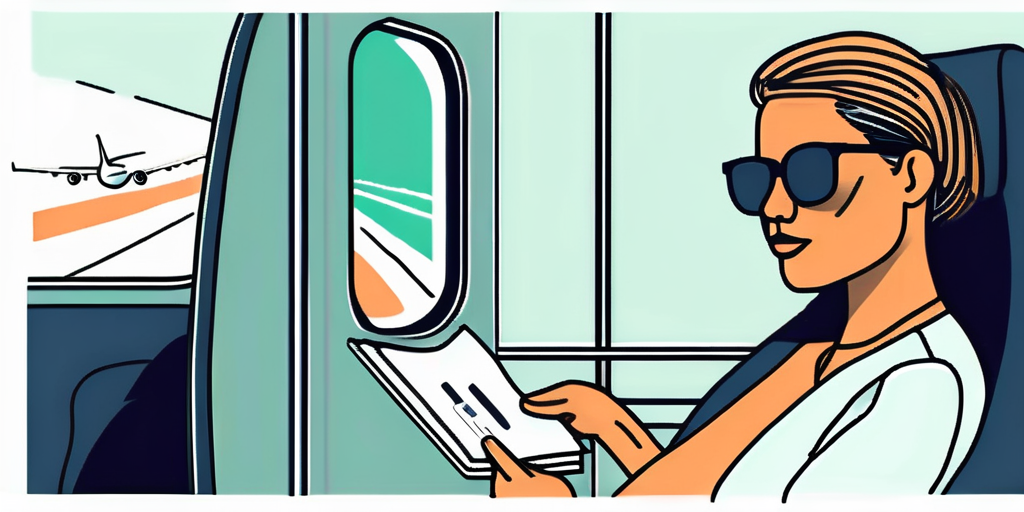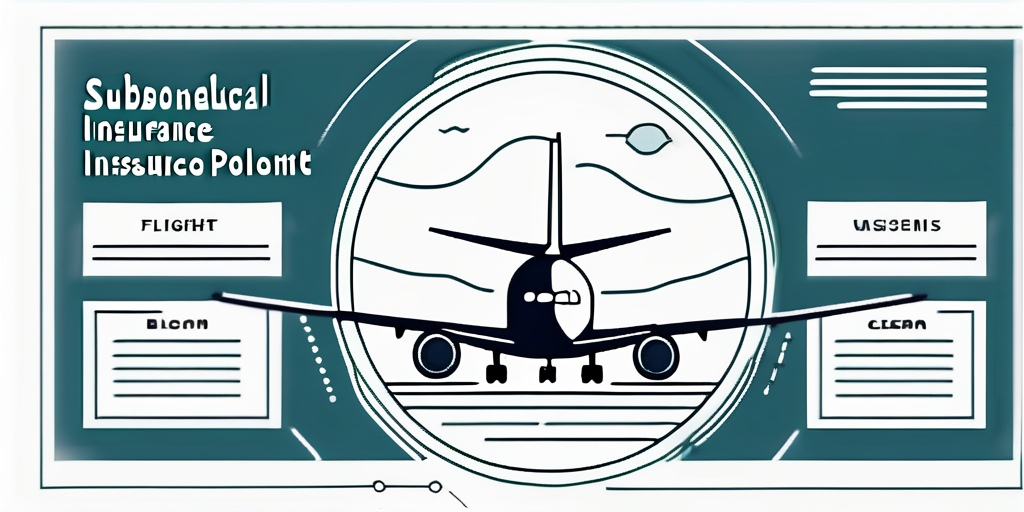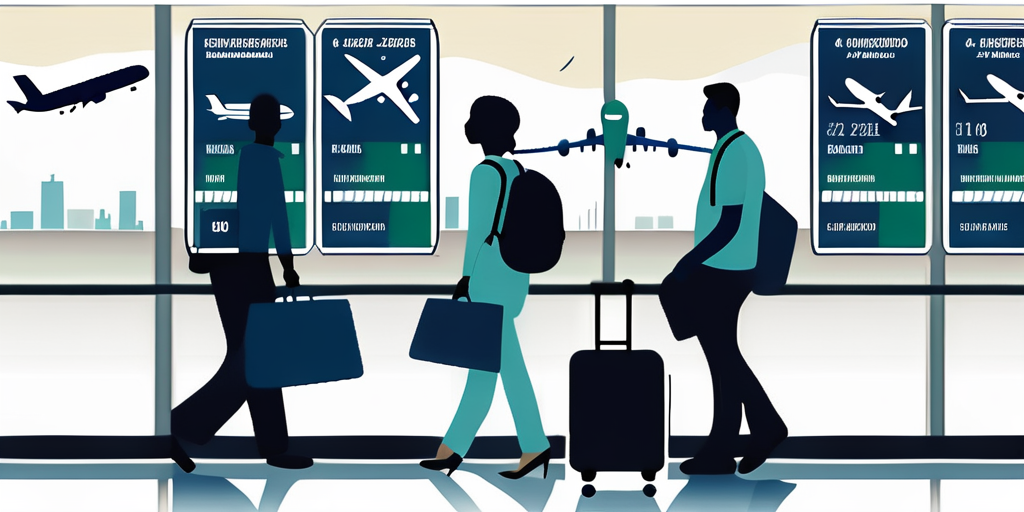Flight Cancellation Rules: What You Need to Know
Discover crucial flight cancellation rules for smooth travel. Know your rights and obligations with airlines and stay informed.
Flight cancellations can be a major inconvenience for travelers, often leading to frustration and uncertainty. Understanding the rules and regulations surrounding flight cancellations is crucial for navigating these situations effectively. In this article, we will explore flight cancellation policies, your rights as a passenger, how to navigate insurance for flight cancellations, and provide helpful tips on dealing with these unexpected disruptions. By the end of this article, you will be equipped with the knowledge needed to handle flight cancellations confidently and minimize their impact on your travel plans.
Understanding Flight Cancellation Policies
Before diving into the specifics of flight cancellation policies, it is essential to grasp the basics of these regulations. When an airline cancels a flight, they are typically required to offer passengers certain options, such as rebooking, refund, or alternative transportation. The specific policies can vary between airlines and depend on factors such as the reason for cancellation, whether it is a domestic or international flight, and the duration of the delay.
The Basics of Flight Cancellation
Flight cancellations can occur for various reasons, including weather conditions, technical difficulties, or operational issues. Airlines usually have specific procedures in place to handle these situations and minimize inconvenience to passengers. For example, in the case of inclement weather, airlines may cancel flights to ensure the safety of passengers and crew members. Technical difficulties or operational issues can range from mechanical problems with the aircraft to unforeseen circumstances at the airport, such as air traffic control issues or runway closures.
When a flight is canceled, airlines strive to provide alternative options to affected passengers. These options may include rebooking on the next available flight, offering a refund for the canceled flight, or arranging alternative transportation, such as a bus or train ticket. The availability of these options may depend on various factors, including the airline's policies, the reason for cancellation, and the availability of alternative flights or transportation.
Airline-Specific Cancellation Policies
Each airline has its own set of cancellation policies, which may differ in terms of compensation, rebooking options, and refund procedures. Some airlines may provide more flexible options for rebooking, allowing passengers to choose a new flight that suits their schedule. Others may offer higher compensation for certain types of cancellations, such as those caused by the airline's own operational issues.
It is advisable to review the cancellation policies of your chosen airline before booking your flight to ensure you are aware of the options available to you in the event of a cancellation. By understanding these policies in advance, you can make an informed decision and be prepared for any unforeseen circumstances that may arise.
International vs. Domestic Cancellation Rules
While some aspects of flight cancellation policies remain consistent regardless of the flight's destination, there can be variations between international and domestic flights. Different countries have different regulations governing passenger rights, which can impact the compensation and assistance provided by airlines in the event of a cancellation.
For example, in the European Union, passengers are protected by the EU Regulation 261/2004, which establishes certain rights for passengers in the event of flight cancellations. This regulation entitles passengers to compensation, rebooking, and assistance, depending on the circumstances of the cancellation. However, these rights may not apply to flights outside of the European Union, where different rules and regulations may come into play.
It is important to familiarize yourself with the cancellation rules specific to the country you are traveling to or from to understand your rights as a passenger in different situations. By being aware of these regulations, you can better navigate the complexities of flight cancellations and ensure that you receive the appropriate support and compensation if your flight is canceled.
Your Rights as a Passenger
When faced with a flight cancellation, it is vital to be aware of your rights as a passenger. Understanding what you are entitled to in these situations can help you advocate for yourself and ensure you receive the compensation and assistance you deserve.

Compensation for Flight Cancellations
In many cases, passengers are entitled to compensation when their flight is canceled. The amount of compensation can vary depending on factors such as the distance of the flight and the length of the delay caused by the cancellation. It is important to check the regulations set by the governing authorities or the airline itself to understand the compensation you may be eligible for in such circumstances.
Rebooking and Refund Options
When a flight is canceled, airlines typically offer passengers the choice of rebooking on another flight or receiving a refund for their ticket. Some airlines may also provide additional benefits, such as meal vouchers or hotel accommodations, depending on the length of the delay. It is important to communicate with the airline promptly to explore the available options and choose the one that best suits your needs.
Dealing with Overnight Delays
In some cases, flight cancellations can result in overnight delays, especially when alternative flights are not available immediately. When faced with an overnight delay, airlines may provide hotel accommodations and transportation to the hotel. It is important to familiarize yourself with the airline's policies regarding overnight delays to ensure you know what to expect and what assistance you are entitled to.
During an overnight delay, it is essential to take care of your well-being. Make sure to pack a small bag with essential items such as toiletries and a change of clothes. Additionally, carry any necessary medications or personal items that you may need during the delay. It is also a good idea to have some entertainment options, such as a book or a tablet, to keep yourself occupied during the wait.
When you arrive at the hotel provided by the airline, take the time to familiarize yourself with the facilities and services available. If you have any specific dietary requirements or preferences, inform the hotel staff so they can accommodate your needs. Remember to keep any receipts for expenses incurred during the delay, as some airlines may reimburse you for reasonable expenses such as meals or transportation.
Navigating Insurance for Flight Cancellations
Travel insurance can provide an extra layer of protection against unforeseen circumstances, such as flight cancellations. Understanding when to consider travel insurance, what it covers, and how to claim insurance for canceled flights can help alleviate some of the stress associated with these situations.
 Picture this: you've been planning your dream vacation for months, eagerly counting down the days until you can escape the daily grind. You've booked your flights, secured your accommodations, and even planned an itinerary filled with exciting adventures. Everything seems perfect until you receive that dreaded email: your flight has been canceled. Suddenly, your dreams of sipping margaritas on a tropical beach are replaced with frustration and disappointment.
Picture this: you've been planning your dream vacation for months, eagerly counting down the days until you can escape the daily grind. You've booked your flights, secured your accommodations, and even planned an itinerary filled with exciting adventures. Everything seems perfect until you receive that dreaded email: your flight has been canceled. Suddenly, your dreams of sipping margaritas on a tropical beach are replaced with frustration and disappointment.
When to Consider Travel Insurance
Travel insurance is worth considering when your trip involves significant non-refundable expenses, such as flights, accommodation, or tour packages. It can provide coverage for trip cancellations, including flight cancellations, due to covered reasons specified in the insurance policy. Reviewing the policy terms and coverage limitations is crucial to ensure you have the appropriate coverage for your travel needs.
Imagine this scenario: you've booked a luxurious, non-refundable hotel suite in a bustling city, eager to experience the vibrant nightlife and explore the local attractions. However, unforeseen circumstances arise, and your flight gets canceled. Without travel insurance, you would be left with a hefty bill for a hotel room you can't even use. This is where travel insurance steps in, offering you peace of mind and financial protection.
What Travel Insurance Covers
Travel insurance policies often cover a range of scenarios, including flight cancellations. However, it is important to thoroughly review the policy before purchasing to understand what is included and any exclusions that may apply. Typical coverage may include reimbursement for non-refundable expenses, such as flight tickets or hotel reservations, as well as additional expenses incurred due to the cancellation, such as rebooking fees or alternative transportation costs.
Consider this situation: your flight gets canceled due to inclement weather conditions. Not only are you left stranded at the airport, but you also face the daunting task of finding alternate transportation to reach your destination. With travel insurance, you can breathe a sigh of relief knowing that your policy may cover the costs of securing alternative transportation, saving you from the stress and financial burden.
How to Claim Insurance for Cancelled Flights
If your flight is canceled and you intend to make a claim with your travel insurance provider, it is crucial to follow the necessary steps promptly. Documenting the cancellation, obtaining any required documentation from the airline, and submitting your claim along with supporting evidence are essential. Familiarize yourself with the specific procedures outlined by your insurance provider to ensure a smooth claims process.
Imagine this scenario: your flight gets canceled, and you're determined to make a claim with your travel insurance provider. You diligently gather all the necessary documents, including the cancellation notice from the airline and receipts for any additional expenses incurred. You submit your claim, crossing your fingers for a swift resolution. By following the proper procedures and providing the required evidence, you increase your chances of a hassle-free claims process.
Tips to Handle Flight Cancellations
While flight cancellations can be disruptive, there are several proactive steps you can take to minimize the impact and navigate these situations more effectively.

Preparing for Potential Cancellations
Prior to your trip, research the airline's cancellation policies, familiarize yourself with your rights as a passenger, and consider purchasing travel insurance if necessary. Having this information readily available will help you make informed decisions if a cancellation occurs.
Communicating with Airline Representatives
When faced with a flight cancellation, it is important to communicate with the airline promptly. Reach out to their customer service representatives or visit the service desk at the airport to understand your options and discuss any concerns you may have. Keeping calm and maintaining a polite demeanor can go a long way in achieving a favorable outcome.
Utilizing Airline Apps for Updates and Changes
Many airlines offer mobile apps that provide real-time updates on flight status and allow passengers to make changes or rebook flights directly. Installing these apps on your smartphone and staying connected can keep you informed and provide you with immediate access to alternative options in the event of a cancellation.
Flight cancellations can be stressful, but by familiarizing yourself with the rules and regulations, understanding your rights, exploring travel insurance options, and following proactive tips, you can navigate these situations with greater ease. Remember to stay calm and be prepared for any unforeseen circumstances that may arise during your travels. Happy and hassle-free journeys!
Get Your Rightful Compensation with ClaimCompass
Flight disruptions shouldn't leave you out of pocket. If you've experienced a cancellation, ClaimCompass is here to help you claim up to 600€ in compensation. Our expertise in EU Regulation 261/2004 and our hassle-free compensation calculator make it easy to determine if you're eligible for a claim. There's no risk involved; you only pay a fee if we successfully secure your compensation. Ready to get what you're owed? Submit a claim today and let us take care of the rest, ensuring your air passenger rights are fully respected.
